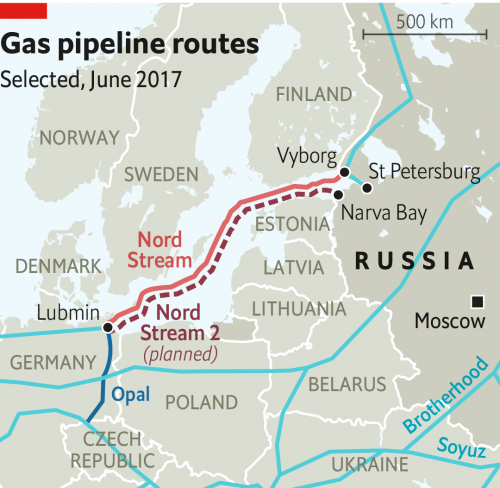Europe’s alternative sources of energy
There have been growing concerns that there could be further restrictions to European gas supplies, well beyond the scheduled maintenance that has been imposed. European countries rely on Russian energy for their cold winters, but now believe that Russia could weaponize their dependency as a response to their sanction due to the conflict in Ukraine. If Nord Stream 1 does not resume its supply to Europe, it will not have adequate gas supply by the end of the year.
Everything is possible, everything can happen,” said Robert Habeck, the Guardian quoted German vice-chancellor and economics minister. He added, “It could be that the gas flows again, maybe more than before. It can also be the case that nothing comes.”
As an alternative source for energy, European countries have increasingly turned towards the US, from whom they purchase liquified natural gas (LNG) that comes via ships. Since ship delivered gas ends up being far more expensive, there are also attempts to get non-Russian pipeline gas from Norway and Azerbaijan.
While EU countries were earlier seeking to phase out fossil fuels and emphasize renewable forms of energy, many are now returning towards coal to deal with the energy crisis. Despite attempts to entirely abandon coal by 2030, Germany’s parliament on 8 July passed emergency legislations to reopen their old coal plants for electricity production.
Economics minister Habeck called the shift “painful but necessary”, as reported by The Guardian, a move that was also supported by the country’s environment oriented Green Party.
Canada stepped in to help Germany
To assist Berlin’s energy crisis, the Canadian government announced it would circumvent its own sanctions and return a repaired Russian gas turbine to Germany that is required for the Nord Stream 1 gas pipeline.
While the Canadian government announced that it would introduce fresh sanctions on Russia’s industrial manufacturing sector, it said in a statement that it was introducing a “time-limited and revocable permit” to allow the return of the key component.
Last month, Gazprom had blamed the delayed return of the turbine for the reduced supply of gas through the pipeline, which was required for the maintenance work scheduled on 11 July, according to The Guardian.
Jonathan Wilkinson, the Canadian minister of natural resources, said that the decision to exempt the turbine from the sanctions would support Europe’s access to “reliable and affordable energy as they continue to transition away from Russian oil and gas”.
Without a supply of natural gas, “the German economy will suffer very significant hardship and Germans themselves will be at risk of being unable to heat their homes as winter approaches,” he added.
This decision has drawn the ire of the Ukrainian government, which stated that the return of the Russian gas turbine would “strengthen Moscow’s sense of impunity”. Claiming that the decision would be in breach of sanctions against Russia, it has called on Canada to reverse its decision.









 Latest News
Latest News

 General Studies
General Studies